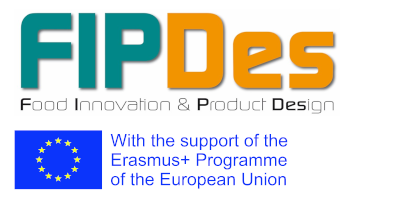
Second year
The second study year (M2) offers three specialisation pathways concerning strategic and emerging sectors of food product innovation. A salient feature of the second year course is the close cooperation with industry and interacting within active learning environments.
During the second year students specialize in one of three options in France, Italy or Sweden and prepare their MSc. Thesis worldwide.
— > click on the semester/courses to see each detail course description
Semester 3: Specialization
Third semester (M2): 3 locations depending on specialization:- University of Napoli (UNINA, Naples, Italy): Healthy Food Design- AgroParisTech (Massy, Paris, France): Food Design & Engineering- Lund University (Lund, Sweden): Food Packaging Design & Logistics
Each option is based on the partner universities’ research and teaching strengths and can welcome a maximum of nine students. The orientation and selection of students will be made during the first year by the Consortium Committee.
Students increase autonomy and enquiry attitudes, learn by doing team work, research-oriented projects and hands-on training.
Throughout the Master programme, students participate in numerous transversal activities which allow them to share and build new knowledge from different perspectives and different places, continuously interacting with alumni, local students, professionals and teaching staff (Introduction modules, FIPDes Day, transversal innovation modules, innovation challenges or IT-based sharing platforms).
Healthy Food Design:
Students will attend courses at UNINA (Napoli, Italy). The main goal of this option is to train students in developing functional foods addressing specific health needs (such as hypoallergenicity). They will also receive basic knowledge in food regulations related to health claims. Furthermore, the objective is to provide the students with knowledge in food culture and culinary traditions of Mediterranean countries.
Food Design & Engineering:
Students will attend courses at AgroParisTech (Paris, France). The main objective of this option is to give students knowledge and technical skills for process-based food design in order to understand, choose, design and optimise degrees of freedoms on food manufacturing operations. The development of food quality by combining formulation and processing is a key figure of the specialisation. The senior project module strongly structures the student active learning by mobilising theoretical and practical knowledge.
Food Packaging Design & Logistics:
Students will attend courses at Lund University (Lund, Sweden).The main objective of this option is to give students knowledge of an integrated system view of food packaging design in a value chain perspective. The main objective can be divided into sub-objectives which aim at giving students a basic knowledge in packaging technology and development, based on user requirements, product requirements and sustainable development around the package. Furthermore, the objective is to provide the student with in-depth knowledge in how packaging systems influence food supply chains and vice versa, i.e. packaging logistics. The teaching is problem-based which drives the student to investigate the central concepts and principles treated in the course module to gain advanced skills in analyzing complex systems, especially packaging and logistics systems, and carrying out projects in real life.
Semester 4: Master Thesis
Fourth semester (M2): MSc. Thesis worldwide, according to third semester specialization and local rules
The students dedicate their final semester to their MSc Thesis. According to the second year host institution, the MSc. Thesis might lead to an industrial or research-based placement in private or accademic R&D laboratory in a partner’s or associate member’s institution. A list of all Master thesis completed since 2013 is published here.
The Master thesis are always linked to the second year specializations. Normally internships are included, but there are differences in each country, according to the local rules.
Here you can find a description about Master Thesis procedures & rules in:
- AgroParisTech:
- UNINA:
- Lund : Guidelines and Course Syllabus
Here you can download the Book of executive summaries of the Master thesis of each cohort:
– Cohort 1:
– Cohort 2:
– Cohort 3:
– Cohort 4:
– Cohort 5:
– Cohort 6:
– Cohort 7:
– Cohort 8:
– Cohort 9:
– Cohort 10:
The Master Course ends with the joint Graduation Ceremony held in Paris during the first week of September.
- Updated November 2023 -
